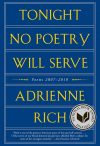
Ballade of the Poverties
A classic poem by Adrienne Rich, reprinted. | more…

A classic poem by Adrienne Rich, reprinted. | more…
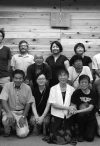
In this deeply stirring account, Sit Tsui and Lau Kin Chi share their field research, conducted over years of travel and relationship-building, into the Japanese antinuclear movement. As the people and environment of Fukushima continue to be impacted by the disaster at the Fukushima Daiichi power plant in March 2011, the No-Nukes movement has grown in response, encompassing aspects of society ranging from artists and monks to fisherfolk and intellectuals. | more…

A new poem by Marge Piercy. | more…

Joel Wendland-Liu reviews Li Dazhao: China’s First Communist, by Patrick Fuliang Shan (SUNY Press, 2024). This first-ever English-language biography of Li, a founding member of the Communist Party of China, Wendland-Liu writes, contains not only new scholarship but a fresh approach to the life of this revolutionary figure. | more…
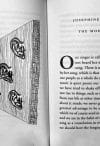
Christian Noakes invites readers into a literary exploration of Franz Kafka’s short story, “Josephine the Singer.” After all, as the author notes, “Kafka’s often nightmarish stories reflect many of the social, political, and cultural dynamics inherent under capitalism.” In applying this notion to “Josephine the Singer,” Noakes discovers a tale that describes not only the mechanisms of domination that constrain us, but the possibilities of a new consciousness, and a new world. | more…

Over six months into to Israel’s atrocity-filled assault on Gaza, Laurence Shoup digs deep to reveal a rarely discussed—but enormously influential—force within the Israel Lobby: the Council on Foreign Relations. The CFR, he writes, is more than just Wall Street’s think tank; it is an elite network of Zionist politicians and donors who comprise a significant part of the Israel lobby and the continuing U.S. commitment to funding Israel’s genocidal actions in Palestine. | more…
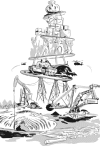
This month’s Review of the Month by John Bellamy Foster illuminates the idea of extractivism, a key concept in understanding our current planetary crisis. The accelerated extraction of Earth’s resources since the mid-twentieth century, Foster notes, threatens not only the natural world, but the means of life for the entire planet. | more…

As populations worldwide grow older, politicians are clamoring to raise the retirement age, thus extending people’s working lives at their own expense. Using the lens of political economy, Cai Chao examines the false narratives behind capitalists’ claims that delayed retirement is necessary to maintain society’s productive capacity, and proposes solutions to promote human development at all life stages. | more…

A new poem by Marge Piercy. | more…
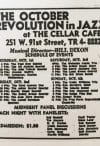
Christian Noakes tells the story of the struggle to liberate jazz from the exploitative, white-controlled music industry in 1950s and beyond. Recounting the seminal events of the movement and backlash from white civil society, Noakes reveals a legacy of Black cultural autonomy and resistance led by such jazz legends as Charles Mingus, Max Roach, Eric Dolphy, Bill Dixon, and others. | more…
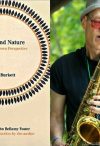
This lyrical vignette from the recently departed Paul Burkett is the author’s final, posthumously published piece for Monthly Review. In it, the eminent ecological economist and jazz musician muses on the nature of creativity, technology, and the corporatization of music—and the struggle to decommodify it, freeing musicians and their craft from the confines of capitalism. | more…

A new poem by Kenneth Salzmann. | more…